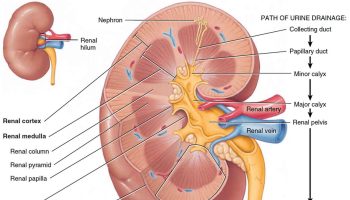Contents
What are bladder stones
Bladder stones are hard lumps of minerals that can form inside the bladder when it’s not completely empty of urine 1. Bladder stones develop when the minerals in concentrated urine crystallize. This often happens when you can’t completely empty your bladder 2.
They may not cause any symptoms if they’re small enough to be passed out of the bladder when you urinate.
However, most people with bladder stones do experience symptoms because the stones either irritate the wall of the bladder or block the flow of urine, which may lead to infections and other complications.
Typical symptoms of bladder stones include:
- lower abdominal pain, which can often be severe (men may also have pain in or around their penis)
- pain or difficulty when peeing
- peeing more frequently (particularly at night)
- cloudy or dark-colored urine
- blood in the urine
Most cases of bladder stones affect men aged 50 or older, because of the link with prostate enlargement (see below).
It’s rare for bladder stones to affect children. In children, they can lead to bedwetting, and some boys may experience priapism – a persistent and often painful erection that can last for hours.
Figure 1. Urinary bladder location
Figure 2. Urinary bladder anatomy
Symptoms of bladder stones
Not everyone who has bladder stones will have symptoms. Two things can trigger symptoms. First, the stones can start to rub along your bladder lining. Second, the stones can block urine from leaving the bladder. Sometimes bladder stones — even large ones — cause no problems.
Symptoms include:
- Stomach pain or pressure.
- Cloudy or dark-colored urine.
- Blood in your urine.
- Frequent or painful urination.
- A burning sensation during urination.
- Trouble passing urine, or loss of urine control.
- For men, pain in your penis or testicles
- Lower abdominal pain
In men, pain or discomfort in the penis or testicles
What causes bladder stones ?
Bladder stones usually develop when your bladder doesn’t empty completely, and the urine forms crystals. Some infections can lead to bladder stones, and sometimes an underlying condition that affects the bladder’s ability to hold, store or eliminate urine can result in bladder stone formation. Any foreign materials present in the bladder tend to cause bladder stones.
Common problems that lead to bladder stones include:
- Enlarged prostate. Men have a gland called the prostate. It forms around the urethra next to the bladder. When the prostate expands, it puts pressure on the urethra. The enlarged prostate can obstruct the flow of urine, preventing complete emptying of the bladder. Prostate enlargement occurs in a lot of men as they get older.
- Inflamed bladder. Certain infections can bother your bladder. The most common is a urinary tract infection (UTI). Radiation to your pelvic area is another possible cause.
- Nerve damage (neurogenic bladder). Normally, nerves carry messages from your brain to your bladder muscles, directing your bladder muscles to tighten or release. If these nerves are damaged — from a stroke, spinal cord injury or other health problem — your bladder may not empty completely.
- Bladder surgery. People who can’t control their urine flow may require surgery. This increase in the shape of your bladder can cause bladder stones.
- Cystocele. This is a condition in which a woman’s bladder wall weakens and drops. It creates pressure in the pelvic area. It can affect urine flow and lead to growth of bladder stones.
- Medical devices. Bladder catheters — slender tubes inserted through the urethra to help urine drain from your bladder — may cause bladder stones. So can objects that accidentally migrate to your bladder, such as a contraceptive device or urinary stent. Mineral crystals, which later become stones, tend to form on the surface of these devices.
- Kidney stones. Stones that form in your kidneys are not the same as bladder stones. They develop in different ways. But small kidney stones may travel down the ureters into your bladder and, if not expelled, can grow into bladder stones.
You also can develop bladder stones if your urine is too acidic, or concentrated. Rarely, foreign objects can get into your bladder. An example is a piece of a medical device used in surgery. These can cause bladder stones to form.
Kidney stones have similar symptoms as bladder stones. However, they are not the same thing. Kidney stones don’t always go away on their own. If they get stuck in the bladder, they can produce new stones there.
Risk factors for Bladder stones
Bladder stones are common in children in developing countries — often because of dehydration, infection, abnormalities in the urinary tract and a low-protein diet. In other parts of the world, bladder stones occur primarily in adults.
Conditions that raise the risk of bladder stones include:
- Bladder outlet obstruction. Any condition that blocks the flow of urine from your bladder to the urethra — the tube that carries urine out of your body — can lead to bladder stone formation. Bladder outlet obstruction has many causes, but the most common is an enlarged prostate.
- Neurogenic bladder. Stroke, spinal cord injuries, Parkinson’s disease, diabetes, a herniated disk and a number of other problems can damage the nerves that control bladder function. Some people with neurogenic bladder may also have an enlarged prostate or other type of bladder outlet obstruction, which further increases the risk of stones.
Complications of Bladder stones
Bladder stones that aren’t expelled — even those that don’t cause symptoms — can lead to complications, such as:
- Chronic bladder dysfunction. Untreated bladder stones can cause long-term urinary problems, such as pain or frequent urination. Bladder stones can also lodge in the opening where urine exits the bladder into the urethra and block urine passage.
- Urinary tract infections. Recurring bacterial infections in your urinary tract may be caused by bladder stones.
Prevention of Bladder stones
Bladder stones usually result from an underlying condition that’s hard to prevent, but you can decrease your chance of developing bladder stones by following these tips:
- Early diagnosis and treatment of an enlarged prostate or another urological condition may reduce your risk of developing bladder stones.
- Drink plenty of fluids. Drinking more fluids, especially water, may help prevent bladder stones because fluids dilute the concentration of minerals in your bladder. How much water you should drink depends on your age, size, health and level of activity. Ask your doctor what’s an appropriate amount of fluid for you.
How are bladder stones diagnosed ?
Medical care is needed to diagnose bladder stones. Your doctor will order tests to find the stones and determine the cause.
These include:
- Physical exam. Your doctor will check your stomach for pressure and pain. For men, they also may perform a rectal exam to check your prostate.
- Urine test. There are two ways to test your urine: a urine analysis (urinalysis) and a urine culture. You will provide a clean-catch urine sample. For this, you’ll use sterile wipes to first clean your penis or vagina to prevent germs from getting into your urine sample. The lab will check your urine for bacteria, blood, and signs of bladder stones. It also will check for infection, such as a UTI.
- X-ray. Your doctor might order an X-ray of your pelvic area. Some forms of bladder stones will be visible.
- Computerized tomography (CT) scan. Not all bladder stones will show up on an X-ray. A CT scan might be done if the X-ray is negative.
- Urinary tract imaging. Your doctor will inject a special fluid in your veins. It will flow through your urinary tract. Once it reaches your organs, they will take an X-ray. The contrast of the liquid will better show bladder stones.
- Ultrasound. This will identify stones using sound instead of radiation.
- Cystoscopy. Your doctor might need a closer look inside your bladder. They will insert a small tube with a camera into your urethra. The exam will detect anything abnormal.
Can bladder stones be prevented or avoided ?
Bladder stones that result from a related condition are hard to prevent. It helps to contact your doctor when you first have symptoms. Treat a UTI before bladder stones could form.
You can lower your risk of getting bladder stones by staying healthy. Make sure you drink a lot of water. Between 6 and 8 glasses is average. Ask your doctor what is best for you. Stay away from diets high in fat, salt, and sugar.
Double voiding: urinate again 10-20 seconds after your first attempt (if you’re unable to empty your bladder completely first time) and it helps empty the bladder more efficiently
Avoid constipation (regular laxatives may be recommended)
Avoid smoking and illegal drugs. Your kidneys can have a hard time getting rid of their bad chemicals. If the chemicals build up, bladder stones can form.
Bladder stones treatment
Some bladder stones will pass on their own. Drinking extra water will help them pass through your bladder with the urine. You can have some pain when the stones exit your body. Typically, this only works if you find them early or they are small enough.
In most cases, your doctor will need to remove them. There are two main ways they can do this. The most common way is to use a cystoscope. Your doctor will insert the small tube with a camera into your urethra. The camera will detect the bladder stones. Your doctor will use a laser or ultrasound to break up the stones. They also can use a medical device. Fluids will wash out the remaining pieces.
Sometimes the stones are too large to pass through the urethra. Your doctor will need to cut an opening near your pelvis. They will enter through the cut and remove the stones from your bladder. Surgery does require some form of anesthesia. You might have to stay in a hospital.
Living with bladder stones
After surgery, your doctor will check to make sure all stones are gone. They may repeat tests to confirm. They also might prescribe medicine to prevent any infection.
Based on the cause of your bladder stones, you might require more treatment. If your doctor finds a tumor in your bladder, they will check for cancer.
If you do not treat bladder stones, you can have lasting damage. This includes repeat UTIs or injury to your bladder, kidney, or urethra.
Breaking stones apart
Bladder stones are often removed during a procedure called a cystolitholapaxy (sis-toe-lih-THOL-uh-pak-see). A small tube with a camera at the end (cystoscope) is inserted through your urethra and into your bladder to view the stone. Your doctor then uses a laser, ultrasound or mechanical device to break the stone into small pieces and flushes the pieces from your bladder.
Hand-held lithotripters use ultrasonic energy to break up the stone into pieces small enough to pass in the urine. Holmium laser lithotripsy uses a laser to break up the stone.
Before the procedure, you’ll likely be given an anesthetic that numbs the lower part of your body (regional anesthesia) or that makes you unconscious and unable to feel pain (general anesthesia). Complications from a cystolitholapaxy aren’t common, but urinary tract infections, fever, a tear in your bladder or bleeding can occur. Your doctor may give you antibiotics before and after the procedure to reduce the risk of infections.
About a month after the cystolitholapaxy, your doctor will likely confirm that there are no remaining stone fragments in your bladder.
Surgical removal
Occasionally, bladder stones that are large or too hard to break up are removed through surgery. In these cases, your doctor makes an incision in your bladder and directly removes the stones.







